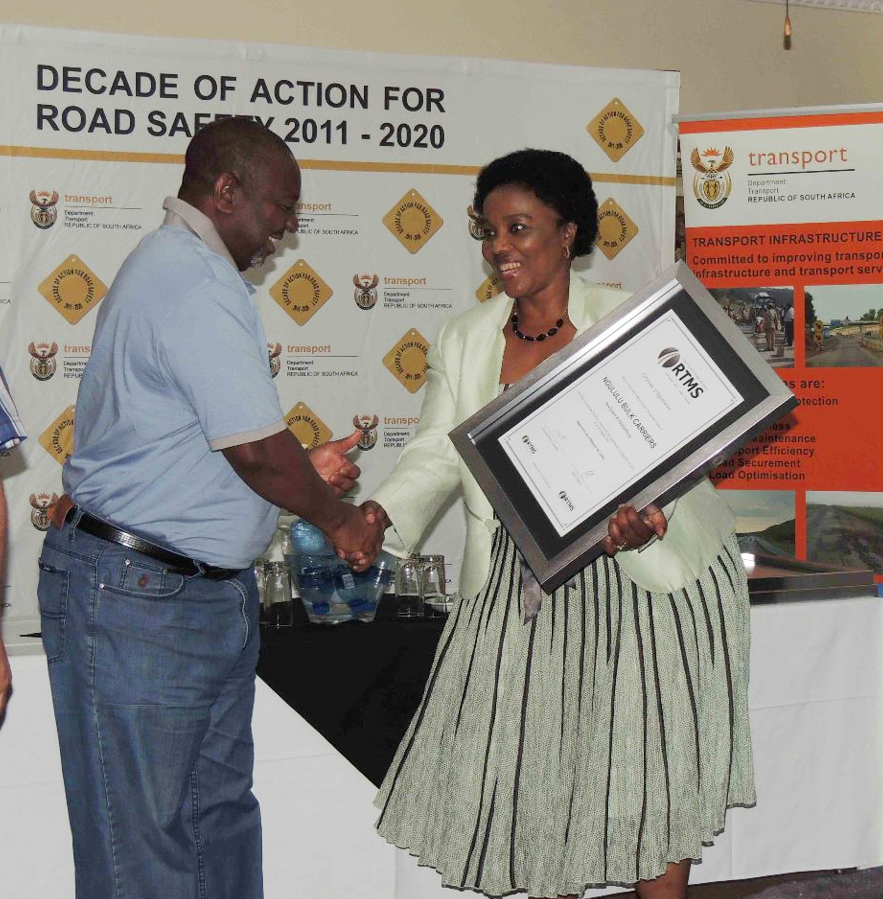RTMS: Beacon of Success
RTMS: Beacon of Success
As Southern Africa continues to grapple with the complex challenges of road safety and efficient freight transport, the Road Transport Management System (RTMS) stands out as a beacon of success nearly two decades after its inception.
Initiated in 2004 as a pilot project to curb overloading, the RTMS has evolved into a holistic management system that focuses on vehicle loading, maintenance, regulatory compliance, and improving driving behaviour and driver wellness. It has been widely adopted by SA’s leading logistics companies and a host of professional transporters, many of whom have presented case studies showing the system’s notable benefits. These include reductions in overloading, improved vehicle utilisation, reduced fuel consumption, reduced carbon emissions, improved regulatory compliance (reduced traffic infringements), better driving performance (safety and efficiency), and – most notably – reduced operational risk, as evidenced by a reported reduction in accidents and incidents.
JC Auditors (JCA) has conducted over 10,000 RTMS audits over the last two decades, and has witnessed firsthand the widespread adoption and success of RTMS certifications across the region. Managing director of JCA, Oliver Naidoo, summarises the key areas assessed during RTMS audits to ensure compliance with the RTMS standards and to identify areas for improvement. These include:
- Management Commitment: Auditors assess the level of commitment from senior management to implementing and maintaining the RTMS requirements. This includes ensuring that management provides adequate resources and support for RTMS implementation.
- Vehicle Maintenance: Auditors examine the maintenance practices of the fleet to ensure that vehicles are kept in a roadworthy condition. This includes checking maintenance records, conducting vehicle inspections, and verifying that maintenance is performed by qualified personnel.
- Driver Training and Management: Auditors assess the training programmes in place for drivers, ensuring that drivers are adequately trained in safe driving practices and are aware of the requirements of the RTMS standards. They also check that driver performance is monitored and managed effectively.
- Transport Operations: Auditors review the transport operations of the fleet, including trip scheduling, load management, and route planning. They ensure that operations are conducted in a safe and efficient manner, minimising risks to road safety and the environment.
- Documentation and Record Keeping: Auditors check that the necessary documentation and records are maintained, including RTMS manuals, policies, procedures, and audit reports. This ensures that there is a proper system in place for managing and documenting RTMS compliance.
- Risk Management: Auditors assess the risk management practices of the fleet, ensuring that risks related to road safety, environmental impact, and business continuity are identified and managed effectively.
- Continuous Improvement: Auditors look for evidence of continuous improvement in RTMS implementation, including the implementation of corrective and preventive actions based on audit findings and feedback.

By focusing on these key areas during RTMS audits, auditors help fleet operators identify areas for improvement and ensure they are meeting the requirements of the RTMS standards.
RTMS certifications have not only benefited individual companies, but have also had a positive impact on the broader economy. Reductions in overloading, for example, help to prevent premature degradation of road networks. By promoting responsible practices and reducing the number of unsafe practices, breakdowns, and road accidents, the RTMS has also helped to minimise disruptions to supply chains.
“We recognise that the audit credibility is a critical component of management system audits, assuring industry of the highest levels of good governance. In addition to SANAS accreditation, JCA’s alignment with the International Accreditation Forum (IAF) further enhances credibility on the international stage. This IAF alignment ensures that JCA’s audits are conducted in accordance with globally recognised best practices,” emphasises Naidoo.
Looking ahead, the continued success of the RTMS will depend on the collective efforts of all stakeholders, including government, consignors, consignees, and, of course, the road freight sector. It is imperative that we continue to prioritise road safety and sustainable transport practices to ensure safer, more efficient and resilient supply chains in Southern Africa.
Published by
Focus on Transport
focusmagsa



